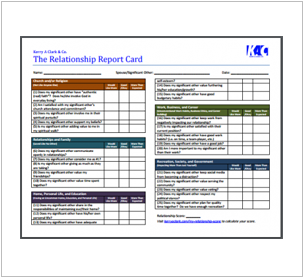The 5 Basic Financial Categories – Part 7
We remember the days where our net worth was negative. What about you? You know the time when your debts outweighed your assets. Do you remember when…
- You couldn’t pay for something? You had no means to get the money.
- Your credit card payments were just too much?
- You went through bankruptcy and thought that would be the answer?
- You paid off a loan?
Can you remember any of these scenarios? Do you know a memory that’s more important? Let me tell you, it’s remembering when you didn’t know something you really needed to know, but you didn’t know at the time. This is the purpose for this post.
“Net worth” is one of those. It’s the indicator that will tell you if you’re better off or worse off than you think. However, without knowing your “net worth”, how would you know where you stand financially? This stuff isn’t something that’s taught practically in school and there are very few courses and classes that will show you how to put it all together. Here at kerryAclark.com/blog, we’re all about sharing tips, resources, and practices on how to improve the business of running your life.
Your Family’s Net Worth
Before I continue, remember this post is part of a series called “The 5 Basic Financial Categories“. These categories are ones that I picked up simply by using an app that I highly recommend called “Mint“. [Side-note: I’m not currently receiving any royalties or kickbacks from Mint.com for my promoting the app.] We simply want you to see how easy it can be to better manage what you have financially.
Knowing the 5 basic financial categories is the key to calculating your “net worth”. See the illustrations below.
 Assets minus debts yield “net worth”. The question is whether or not your “net worth” is positive or negative? So let’s review your assets. Assets are simply the cash, investments and property that you possess. While debts equal your credit card balance plus your loan balances. In essence, “net worth” is what you own minus what you owe. When your “net worth” is positive, you’re in relatively good financial condition. When it’s negative, you’re in trouble. The key to staying out of trouble is to monitor your worth regularly and that’s where Mint comes in and does a great job.
Assets minus debts yield “net worth”. The question is whether or not your “net worth” is positive or negative? So let’s review your assets. Assets are simply the cash, investments and property that you possess. While debts equal your credit card balance plus your loan balances. In essence, “net worth” is what you own minus what you owe. When your “net worth” is positive, you’re in relatively good financial condition. When it’s negative, you’re in trouble. The key to staying out of trouble is to monitor your worth regularly and that’s where Mint comes in and does a great job.
Enough about Mint. Notice that “net worth” has very little to do with your recurring bills, the stuff you pay out regularly. Because of this blind spot, we make big mistakes when evaluating our finances and poor decisions. When we’re negative, it simply means we never have enough to cover what we owe and will never be able to pay all the expenses that come our way.
BTW – Pamela and I learned this concept the hard way. We went through all the financial woes that having a negative “net worth” brings. Once we began to improve this, our finances and even our ability to pay bills improved.
Today is Friday!
In this post, our goal is to give you a simple definition of calculating your “net worth” and show you why it’s critical to having financial success for your life, your business. Leave a comment below if you have questions.
 is available now!
Our team has worked very hard putting it together. We designed it to help you and your family move the needle forward in making your life your business.
Find out more about the Family plan here.
is available now!
Our team has worked very hard putting it together. We designed it to help you and your family move the needle forward in making your life your business.
Find out more about the Family plan here.



Leave a Reply